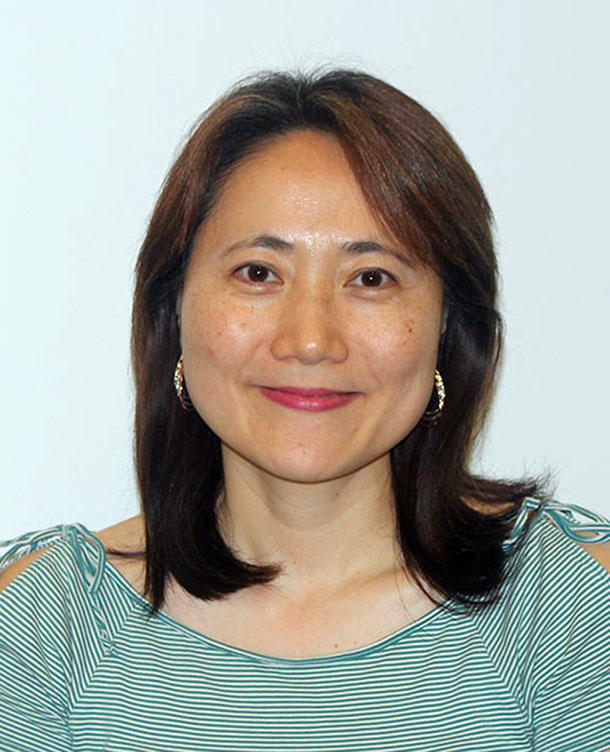
Jiyeon Choi, Ph.D., M.S.
NCI Shady Grove | Consolidated Research Laboratories, Room 3116
Biography
Jiyeon Choi Laboratory
Learn about the lab: research focus, lab members, news, and publications.
Jiyeon Choi received her B.S. from Ewha Womans University and her M.S. from Korea University in Seoul, Korea, and her Ph.D. in cell and developmental biology from Rutgers University in New Jersey. In 2011, Dr. Choi joined NCI as a postdoctoral fellow in the Laboratory of Translational Genomics; she was promoted to research fellow in 2016. In 2019, Dr. Choi was appointed as an Earl Stadtman Investigator and selected for the NIH Distinguished Scholars Program.
I AM INTRAMURAL Blog
Read Dr. Choi's comments in the blog post, Examining Genetic Influences on Lung Cancer.
Dr. Choi has received numerous awards for her work, including the NCI Director’s Intramural Innovation Award, the DCEG Outstanding Research Paper by a Fellow, and the NCI Outstanding Mentor Award.
Research Interests
While smoking is a major risk factor, about 25% of lung cancer patients are never-smokers, and genetic factors play a critical role in disease risk in both smokers and never-smokers. Dr. Choi and her team focus on uncovering how these factors influence lung cancer susceptibility by utilizing functional genomic approaches that combine both experimental and computational methods.
Genetic Susceptibility to Lung Cancer: Functional Genomics Approaches
Dr. Choi’s goal is to elucidate how inherited genetic variants increase lung cancer risk. Genome-wide association studies (GWAS) have identified genetic regions linked to lung cancer, which vary by smoking status, ethnicity, and histological types. Dr. Choi's group actively participates in major lung cancer consortia such as International Lung Cancer Consortium and Female Lung Cancer Consortium in Asia to generate new GWAS data in diverse populations including both smokers and never-smokers. Her team performs functional studies on these GWAS data, using state-of-the-art tools such as massively parallel reporter assays, chromatin interaction profiling, and single-cell sequencing. Furthermore, they are developing lung tissue expression quantitative trait loci (eQTL) datasets from East Asian and African American populations, which are underrepresented in current genomic resources. This comprehensive approach facilitates the identification of lung cancer susceptibility genes and the exploration of how these genes function in various cellular contexts to promote lung cancer development.
Molecular Mechanisms of Lung Cancer Susceptibility
Building on the genetic data, Dr. Choi’s team investigates how specific genetic variants and genes drive lung cancer development. They focus on how these genes influence tumor progression, particularly in the context of key somatic mutations. Using advanced molecular biology tools like CRISPR, the team explores the effects of genetic and environmental factors, such as exposure to carcinogens, on lung cancer at the cellular level. To complement these etiological investigations, the team also engages in larger collaborative studies to broaden their research scope. By participating in large-scale genomics projects, such as Sherlock-Lung—which aims to trace lung cancer etiology in never smokers—the team investigates the molecular mechanisms contributing to the early events of lung cancer development.
Consortia
Member of the International Lung Cancer Consortium (ILCCO)
Information for Journalists
To request an interview with a DCEG investigator, please complete this form: Request For Comment | HHS.gov.
